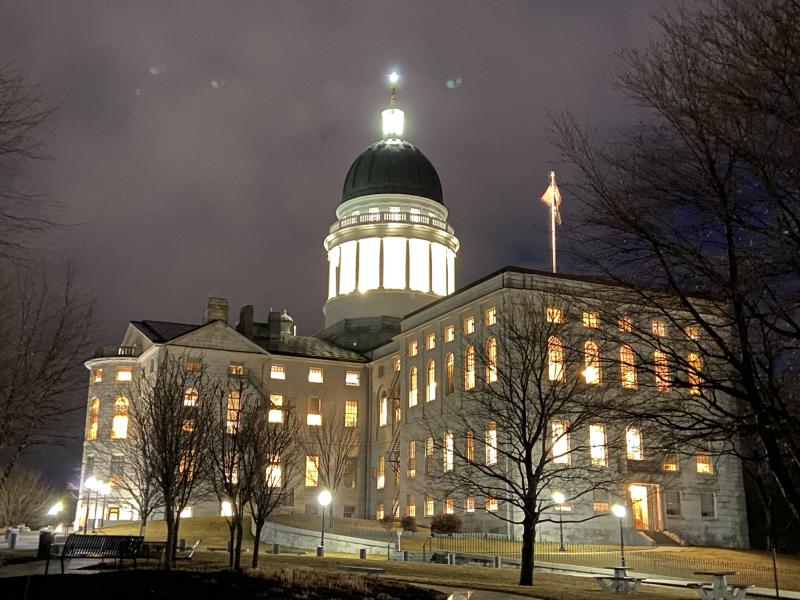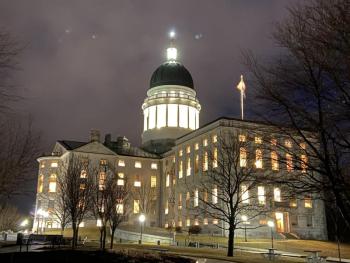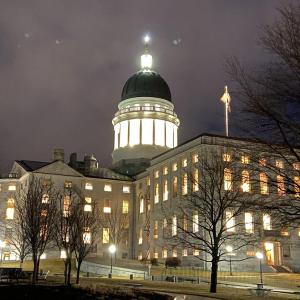New state laws could have local impact
Hundreds of new Maine laws went into effect Oct. 25 on topics ranging from hotly debated healthcare issues to housing. The laws were enacted 90 days after the end of the 131st legislative session, which also approved the state’s $445 million budget.
Among the most contentious issues were healthcare laws on abortion and gender-affirming care. Other new laws require Maine drivers to accommodate for disabled vehicles; and require a burn permit for large campfires. Locally, the Community School District (CSD) Charter was repealed and replaced.
District 48 Rep. Holly Stover said of the approximately 2,300 bills printed, hundreds were enacted into law and many were carried over.
“(An) Unprecedented number of bills were printed and heard in the first session of the 131st,” Stover, who is in her third term, said. “In my tenure I had never seen that many bills.”
Here is a snapshot of some of the new laws and how they could affect the Boothbay region.
Healthcare
A number of controversial healthcare laws went into effect. A particularly debated set of laws, especially LD 1619, expands abortion access in Maine. It makes it so there is no longer a specific time limit on abortion, allowing licensed medical professionals to provide abortions later in pregnancy if deemed medically necessary.
Maine now has some of the least restrictive abortion policies in the nation. Anti-abortion advocates called the measures extreme, expressing concerns about how late in pregnancy an abortion could be allowed and under what circumstances.
Stover said the legislature faced many bills this session due to the Supreme Court’s 2022 decision to overturn Roe v. Wade, declaring abortion is not a constitutional right. Stover said the Maine measures boil down to a patient’s rights to healthcare.
“It was about preserving the rights, the healthcare rights of women to access services, reproductive healthcare services, that include abortion services,” Stover said. She later added, “It's about making a medical decision, allowing the right of a medical decision to be made by a woman, her partner and the medical professionals involved in her care. It's really that simple.”
Another law makes some gender-affirming care be covered by MaineCare; another allows minors who are at least 16 to receive non-surgical gender-affirming care without parental consent in some cases.
In addition, Stover said the state is also one of the first to provide sweeping paid family medical leave, to begin in 2026. The law allows eligible workers 12 weeks of paid time off available to them for family or medical reasons including illness, to care for a relative, or for the birth of a child, according to Maine Department of Labor. The benefits refer to family as a person “with whom the covered individual has a significant personal bond that is or is like a family relationship, regardless of biological or legal relationship.”
Opioids
Several new laws aim to combat the state’s opioid crisis. These include laws allowing municipalities to provide public access to Naloxone, an overdose antidote often referred to as Narcan, in accessible containers in public places such as municipal buildings, public restrooms and libraries.
Boothbay Harbor Police Chief Doug Snyder said the opioid crisis is still one of the Boothbay region's most significant issues. He said it is now mandated that municipalities provide and maintain sites to store naloxone, similar to AED sites.
“From experience, we know having AED sites placed in public areas has saved lives,” he said in an email. "Hopefully, the same will be said for naloxone sites.”
Boothbay Region Ambulance Service Chief Dan Gardner said in an email, all EMS agencies in Maine will be required to participate in the Narcan Leave Behind Program by Dec. 1. Participation was previously voluntary. He said Boothbay EMS has received Narcan from the state and is in the final stages of training to be ready for the start date.
New laws also require more law enforcement officers be trained to administer naloxone and secondary schools to offer annual training. Gardner said the ambulance service is willing to conduct training on how to use the Narcan correctly, along with other curriculum that is involved.
However, Snyder said the new law mandating law enforcement to carry naloxone has no impact on the Boothbay Harbor department. He said it has been training in and carrying naloxone for years, and most officers have successfully deployed it to an overdosing victim and helped save their lives.
“As a personal comment, although officers have been carrying naloxone for years, these laws are great to help save lives,” he said.
Housing and living assistance
Stover said several new laws involve assistance to families in need of housing or other support for living expenses. She said the legislature set aside $70 million for the construction and creation of housing units to reduce homelessness. Projects will be put out to bid around the state.
In addition, she said the legislature increased support for childcare workers from $200 to $400 a month, and reinstated a child tax credit for working families, who need to file taxes to receive the $300 benefit.
“Investments in childcare really relate to our workforce,” Stover said. “We talk a lot about needing to cultivate a stronger workforce here on this peninsula, and we do. But in order to do that successfully, we've got to have places for people to live. And we've got to have childcare slots that are affordable for people, for their children.”
Others
The decades-old CSD charter was repealed and replaced with a two-page version school officials said is more streamlined and better aligns with state laws.
All school lunch periods now must be at least 30 minutes.
Burn permits are now required for campfires that exceed three feet in height and three feet in diameter. These permits are available free of charge and can be secured after 9 a.m. at www.maineburnpermit.com. The new law also makes it unlawful to burn outdoors during red flag warning days.
Drivers are now required to move over and slow down for disabled vehicles on the side of the road. The new law expands Maine's Slow Down, Move Over law to include more than emergency vehicles.
A pandemic law that allowed establishments that already served alcohol to sell to-go beverages has been made permanent. In addition, restaurants can now allow customers to bring their own wine, for a potential fee. In both cases, customers must also order a full meal, not just a snack such as popcorn or chips.

























